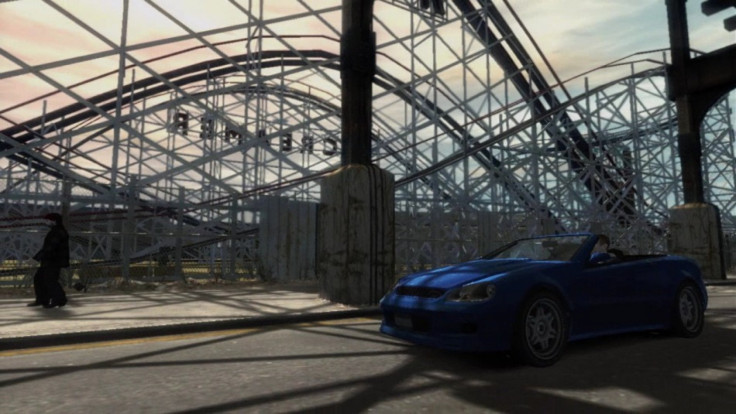Video Game Stocks, Coming Down From Hi Scores, Underperforming Wider Tech Market
ANALYSIS

Like a group of Mountain Dew-addled, beef jerky-fueled gamers desperately mashing the buttons to make the pixels on the screen move, equity traders have been working their fingers raw executing "SELL" orders on shares of American video game companies over the past couple of days, driving an array of video game manufacturers to underperform against the wider high-tech market. The recent trend is a reversal of a months-long movement, which has seen video game stocks consistently deliver better returns than the market, in spite of very high volatility.
Since the nadir reached during intra-day trading on August 9 to the close of trading last Wednesday, the NASDAQ 100 index, a benchmark that tracks the performance of stocks in technology-focused concerns, had risen 14.74 percent.
By wide margins, American video game manufacturers had exceeded those returns. California-based giant Electronic Arts (NASDAQ:ERTS) was up 38.74 percent for the period. Activision Blizzard, Inc. (NASDAQ: ATVI), the other California behemoth, had soared 29.06 percent. Smaller publisher THQ Inc. (NASDAQ:THQI) rose 18.03 percent. All, however, were eclipsed by New York-based Take Two Interactive Software (NASDAQ:TTWO), which climbed a stunning 42.05 percent for the period
[American depositary shares of Japanese game makers, buffeted by unfavorable currency movements, did not fare as well. Konami Corporation (NYSE:KNM) was up 13.09 percent while Nintendo (Over-the-counter:NTDOY) was actually down for the period.]
Since Thursday, however, as news from Europe have driven the market through manic up and down cycles, leaving the NASDAQ 100 index down 1.56 percent, video game manufacturers have been shut down by investors.
Over this small period, Electronic Arts has lost 8.59 percent of its market value. Activision is down 18.52 percent; THQ, down 8 percent. The Japanese publishers have had more mixed results: Konami lost 7.46 percent of its value, while Nintendo was up 1.89 percent for the period. The only corporation bucking the trend was, again, Take Two, which, boosted by news of its wildly successful fifth installment of its Grand Theft Auto series, was up marginally.
The reasons for the sell-off in video games stock vary from company to company. Electronic Arts released second-quarter earnings Thursday afternoon, beating adjusted earnings and revenue estimates but reporting wider actual losses. The resulting sell-off suggests the company is spending more money on capital expenses than thought prudent by Wall Street analysts.
The company might also have suffered from an overly optimistic consensus. An analyst with MKM Partners told the Dow Jones Newswires the shares prior to the earnings release were "priced for perfection, and the net results for earnings and guidance is good, but not good enough."
Activision, for its part, has been dogged by concerns that its competitor's photo-realistic war simulator "Battlefield 3" which sold some 10 million copies in its first week, will affect its upcoming sales of its own "Call of Duty: Modern Warfare" offering, which goes on sale next week.
THQ, which is judged by analyst to be lacking a franchise game at the moment, seems mostly caught up in the turn of the market sentiment. That sentiment, which partly reflects fears the company's traditional market is being nipped at by smaller outfits producing simple mobile games, suggests the market is looking for the video game manufacturers to continue underperforming.
And it is being reflected in the metrics. An example: the put/call ratio for Activision, a financial calculation that measures the view of people buying options to predict the future pricing of the stock, and which is higher the dimmer the market view, is at 1.58, a record high for the company (anything over 1 indicates worsening sentiment; the ratio for the general market fluctuated between 1.32 and 1.41 on Monday). Another: the short interest for THQ, a market aggregate that calculates how many days of trading, in average, it would take for people that have bet against the company to settle their wagers, stands at 10.5 days (the short interest for bets against the S&P 500 stands at 2 days).
Of course there are many things that could reset expectations for the video game companies. Electronic Arts' previously mentioned "Battlefield 3" seems poised to break sales records. Activision could continue chugging along. THQ could surprise analysts today. And Take Two just seems to need three letters (GTA) to drive its shares up.
But will traders want to play along?
© Copyright IBTimes 2024. All rights reserved.





















